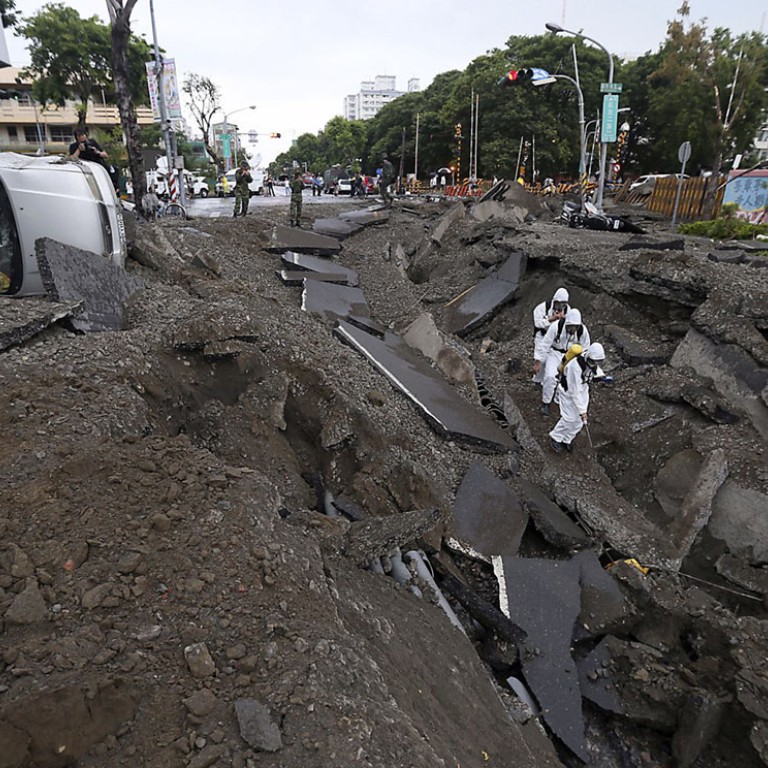
Gas explosion like in Taiwan unlikely here, Hong Kong experts say
Could the blast that ripped through a street in Taiwan's second city happen in Hong Kong? Local experts say it is unlikely because the city has improved its gas transmission system and leakage detection.
Could the blast that ripped through a street in Taiwan's second city happen in Hong Kong?
Local experts say it is unlikely because the city has improved its gas transmission system and leakage detection after a series of accidents in the past.
They said the properties of the gases that exploded in Kaohsiung early yesterday and an inability to identify the source of the leak might be part of the reasons why they caused so much damage.
Vincent Chow Hau-keung, of the Electrical and Mechanical Services Department, said that in Hong Kong, petrochemical products were not transported via underground pipelines through urban areas.
"What we have in the gas pipes are either liquefied petroleum gases made of propane and butane, or natural gases to be converted into town gas. The chance [of a similar incident] is low, but we will still be closely following the latest incident."
The leaked gases in Kaohsiung were thought to be propene and ethylene, which were mainly used in industry and were often moved in large volume or under high pressure, Chow said.
Dr King Wong, president of Hong Kong Institute of Utility Specialists, said propene and ethylene were not as light as Hong Kong's town gas, which was made of hydrogen and methane, and their dispersion in the air was more difficult.
"They tend to sink and it is more difficult for them to escape. Once they accumulate to a certain level, they might explode heavily with any spark," he said.
Wong said Hong Kong had improved its system following several explosions in the past. One of them, at the Wai King Building in Ngau Tau Kok in 2006, killed two people. An inquest into the accident found that gas might have escaped through disused sewage pipes and went into the building. After the incident, the gas company rolled out a programme to replace 150km of old pipes in two years, and improved communications when there were complaints of gas leaks.
Judy Chan, a spokeswoman for Town Gas, said: "Our equipment can detect even the slightest leaks, and once they are detected, we will immediately repair the pipes."
She said most pipes were now made of polyethylene, which was more resistant to erosion and rusting than iron. She said detailed information was key to finding leaks. Town Gas had digitalised maps of pipes to make it easier for its inspectors to do so.
